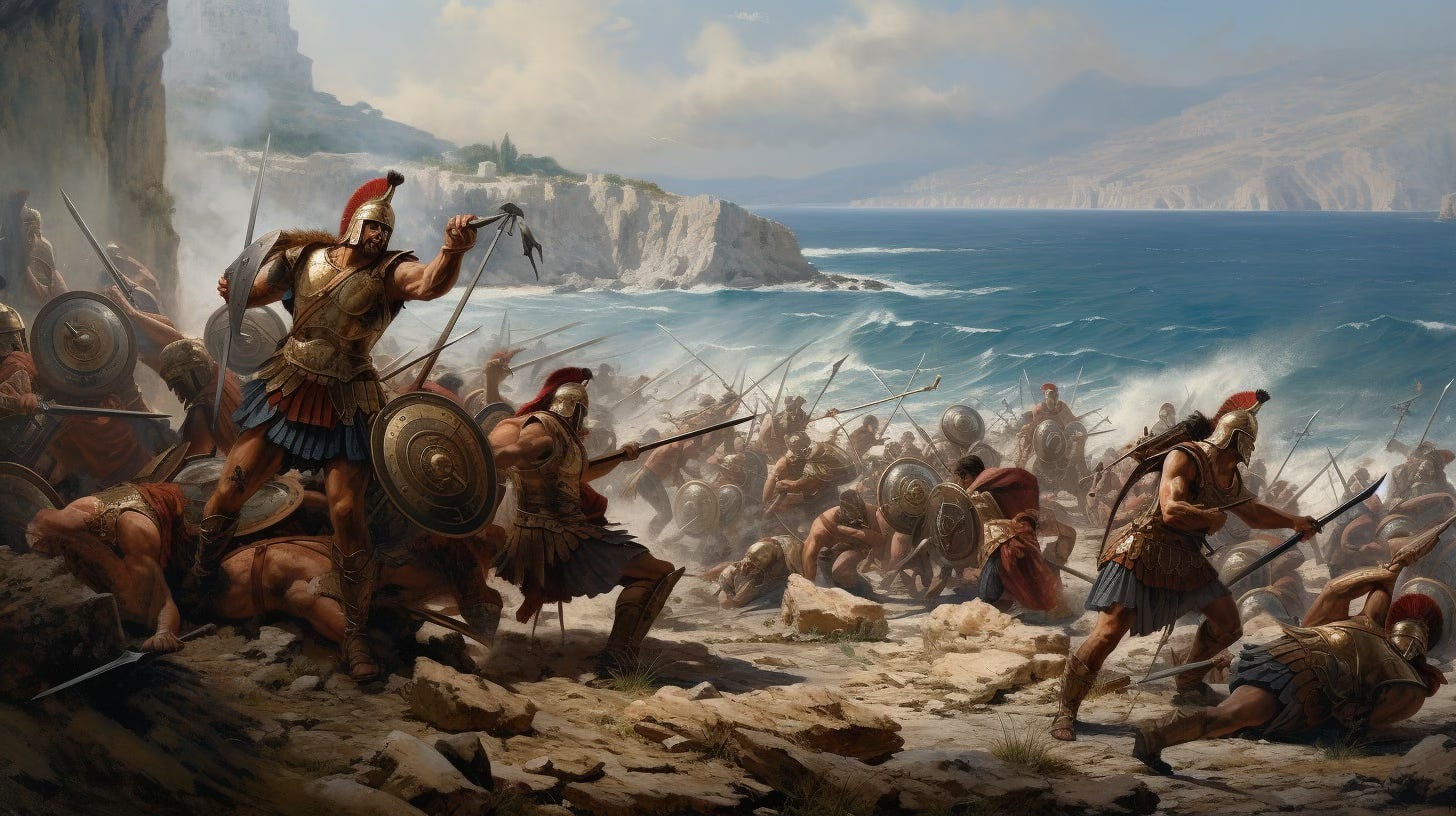The Iliad: Reflections on Books 11 - 13
Will the Greeks push the ships out to sea, abandon the fight, and go home?
Who directs the course of action in The Iliad?
Up until now, it’s been questionable whether the “will of Zeus” as stated on page 1 of the epic has truly been the driving force behind the epic’s narrative. The other gods have played just as large of a role in the direction of the battles as Zeus. However, this begins to change in book 11. Zeus has exerted control by shutting up the other gods (book 13:608-609: “the god of war held fast by the will of Zeus, aloof where the other deathless gods were kept back from battle.”). Only later in these three books do we see Zeus’ brother Poseidon begin to impact the war’s direction.
Is Zeus humoring the other gods to let them think they have influential swaying power, all the while controlling the overall plan? Or does Zeus work all actions of immortals and mortals alike into his will?
While Zeus generally dislikes the gods meddling in his affairs, the appeal by Thetis for her son Achilles holds particular sway over Zeus. While Zeus seems intent on driving the Trojans to victory, a soft spot remains for the Greeks due to her appeal.
The Wall
Book 12 starts with a fascinating look at the wall protecting the Greek ships. There’s a discussion on how the wall will one day fall. It’s an interesting and odd thing to note at the start of this portion of the battle, but it provides an important interlude to ponder a longer view of history amidst the immediacy of this intense battle.
The wall also determines the nature of the war. Trojan horses must stop before the wall. Trojan warriors must proceed on foot. The Greeks look to the wall as their final blockade before the ships.
Past the wall are the ships. The ships signify the end point. If the ships are attacked, the Greeks are finished. The ships will be burned, eliminating the Greek’s way home. The ships signify provision, rest, and a potential escape route for the Greeks. If the ships are lost, the Greeks are lost.
The ships also signify a choice for the Greeks. It’s a choice that Achilles is pondering at the individual level and the Greeks must ponder as a whole. Will they push the ships out to sea, abandon the fight, and go home? It’s an option, but one without glory. Or will they use the ships as a final rallying point (book 12:206-207: “…the Argives, desperate, had no choice, they struggled now to defend the ships…”) in which to turn the tide and bring the attack to the Trojans, thereby pushing the Trojans back to their end point (Troy).
As Homer directs the mind towards the long-term impermanence of walls at the beginning of book 12, he brings to mind those left behind towards the end of the book. Homer compares the Argives holding out against the Trojans to a “working widow,” immediately drawing to mind the widows and orphans being created before our eyes with each death. (book 12:502-505: “They (the Argives) held tight as a working widow holds the scales, painstakingly grips the beam and lifts the weight and the wool together, balancing both sides even, struggling to win a grim subsistence for her children.”). Homer doesn’t allow the reader or listener to revel too long in the exhilarating battle scenes. There is a price to pay for all of this.


